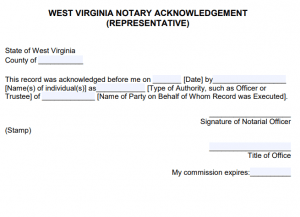

A self-proving will speeds up probate because the court can accept the will without contacting the witnesses who signed it. However, Virginia allows you to make your will "self-proving" and you'll need to go to a notary if you want to do that. No, in Virginia, you do not need to notarize your will to make it legal. Probate, the legal proceedings used to confirm a will and settle a person's final affairs, goes through a division of the county circuit court system in Virginia. Every county in Virginia has a circuit court.

Determine the county where the will has been filed. Once a will is submitted to a Virginia circuit court, it becomes a public record, which any person may obtain. Are wills filed with the court in Virginia? In Virginia, any estate valued at greater than $50,000 at the time of the owner's passing must go through the probate procedure. …ĭo all wills have to be probated in Virginia? Self-Proving Affidavit Not Required, but Recommended.

The testator must be at least 18 years old. What Constitutes a Valid Will in Virginia?

What are the requirements for a will to be valid in Virginia? Every will or authenticated copy admitted to probate by any circuit court or clerk of any circuit court shall be recorded by the clerk and remain in the clerk's office, except during such time as the same may be carried to another court under a subpoena duces tecum or as otherwise provided in § 17.1-213. You should make these changes as soon as you begin the divorce process.A. Equitable Life Assurance Society, 428 N.E.2d 110 (1981). Unless you take your (ex-) spouse’s name off of the policy, your (ex-) spouse may be able to receive a payout from your insurance policy, even if you are divorced.
#IN VIRGINIA DOES A WILL HAVE TO BE NOTARIZED CODE#
Code § 42-3-1 et seq.ĪN IMPORTANT NOTE: If you have any insurance policies that name your (now, ex-) spouse as a beneficiary, you will need to take your (ex-) spouse’s name off of the policy. You can change your will to exclude your (ex-) spouse, but your (ex-) spouse is still guaranteed a certain portion of your property under state law. Separation can’t cancel that gift, only divorce. Until the divorce is finalized or the gift is cancelled some other way, any gift to your (ex-) spouse in your will is valid. The divorce is finalized when the family court judge issues a final order ending the marriage. Once the divorce is finalized, that gift and any other gifts in your will to your (ex-) spouse are automatically cancelled, per W. Who should I appoint as executor of my will? These default rules also apply if you have a will, but it is not valid, or if you have property that is not covered by your will.


 0 kommentar(er)
0 kommentar(er)
